
by Eric Brown | Jul 22, 2016 | Bleach and Mold, Can Black Mold Poison You?, Can Mold Kill?, Chronic Fatigue Syndrome (CFS), Chronic Inflammatory Response Syndrome (CIRS), Dead Mold Spores, Health, How Toxic Is Mold?, Indoor Air Quality, Killing Mold, Mold and Asthma, Mold and Chronic Fatigue Syndrome, Mold and Depression, Mold and Infants, Mold and Multiple Sclerosis, Mold and Parkinson's Disease, Mold and Pregnant Women, Mold and Sids, Mold and Sinusitis, Mold Facts, Mold Information, Mold Remediation, Mold Removal, Mold Sensitized Customer Testimonial, Mold Sensitized Success Story, Questions and Answers, Stachybotrys Black Mold, Toxic Mold
Top Fifteen Frequently Asked Questions About Mold and Health

Top Fifteen Frequently Asked Questions About Mold and Health
Mold B Gone has been helping residents in the Atlanta metropolitan area and surrounding Georgia states with mold removal since 2009.
During this period we have encountered many questions about mold and the impact it can have on health.
Listed below are the top 15 questions we have encountered with links to articles that provide detailed answers.
#1 Why is Stachybotrys Mold A Health Concern?
You often hear about black mold in the media. Why is it such a big deal? Can black mold actually make you sick? This article explains why!
#2 Why Do Some People Get Sick From Mold And Others Do Not?
The challenge mold poses is that it impacts everyone differently. This article explains why!
#3 What Is The Link Between Mold and Chronic Fatigue Syndrome?
Considering the similarity of symptoms between those suffering from ME/CFS and those suffering from CIRS, it is likely that many individuals diagnosed with ME/CFS may have been exposed to mycotoxins produced by mold growth. Learn more!
#4 Is Mold Sickness A Hidden Epidemic?
Since so many health professionals are not aware of the health problems mold causes, many mold advocates believe that it is a hidden epidemic. In short, you could be sick from mold and not even know it. Learn more!
#5 Does Mold Cause Sinus Infections?
Chronic sinusitis costs the health care system more than 8 billion dollars each year. The cause is most likely mold, meaning most of the treatments prescribed are not effective. Learn more!
#6 Could Some People Diagnosed With Multiple Sclerosis Actually Be Suffering From Mold Sickness?
Dr. Rick Sponaugle of the Florida Detox & Wellness Institute strongly believes that environmental factors, such as mold, could be a cause of MS because mold toxins destroy the myelin sheath on brain neurons, causing the classic white spots seen in MS. Learn more!
#7 How Do I Know If Mold Is Making Me Sick?
Most people do not even know they are sick because of mold and or suffering from Chronic Inflammatory Response Syndrome (CIRS). Learn more!
#8 Are Dead Mold Spores Harmful?
There is a lot of bad information on the internet. One of the most prevalent myths is that you can kill mold. This article explains why this is not a good idea and why it can impact your health. Learn more!
#9 Why Does Mold Cause Depression?
Doctor Ackerley believes there is a strong correlation between mold and brain health, particularly depression and suicide. Learn more!
#10 Does Mold Cause Parkinson’s Disease?
Recent research suggests that that biologic compounds such as mold have the potential to damage dopamine and cause Parkinson’s symptoms. Learn more!
#11 Why Is Mold A Health Concern?
Mold is nature’s recycler meaning it is designed to break down dead, organic material. Now, imagine, what happens when you have mold growing in your home. It is breaking down the material it is feeding on. Since we spend up to 90 percent of our time indoors this creates a situation ripe for health issues. Learn more!
#12 Does Mold Remediation Improve Health?
Yes, it does, this article cites a case study.
#13 Does Mold Cause Asthma?
Four studies demonstrate a strong link between mold and asthma. Learn more!
#14 Does Mold Affect Pregnant Women and Infants?
This is a difficult topic to research, but there is some evidence that mold could have an impact. Learn more!
#15 Can Mold Poison Me?
There is evidence that toxins and poisons released by growing mold can harm one’s immune system and cause severe sickness. Learn more!
Got Mold and Health Questions?
If you are concerned about mold and think that it may be impacting your health, please do not hesitate to contact us because we specialize in helping mold sensitized individuals.
Our team of professionals looks forward to serving you.
Peace of mind is just a phone call away, 678-697-6267!
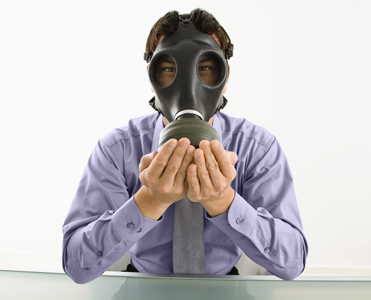
by Eric Brown | Jun 8, 2016 | Air Conditioning, Attic Mold, Basement Mold, Can Black Mold Poison You?, Can Mold Kill?, Chronic Inflammatory Response Syndrome (CIRS), Crawlspace Mold, Dead Mold Spores, Health, How Toxic Is Mold?, Indoor Air Quality, Mold and Asthma, Mold and Depression, Mold and Infants, Mold and Multiple Sclerosis, Mold and Parkinson's Disease, Mold and Pregnant Women, Mold and Sids, Mold and Sinusitis, Mold Facts, Mold In Apartment, Mold Information, Mold Inspection, Mold Remediation, Mold Removal, Questions and Answers, Toxic Mold
Atlanta Indoor Air Quality Testing Experts!

Atlanta Indoor Air Quality Testing Experts!
Indoor air quality testing is an important part of determining how healthy your surroundings are.
Since we spend over 90% of our life indoors, the health and quality of the air we breathe is of utmost importance.
The majority of indoor pollutants are invisible to the naked eye and do not necessarily produce a noticeable odour.
Good indoor air quality should also not be confused with cleanliness or hygiene.
A visibly clean home or office can have a number of air quality issues that are difficult to rectify if they are not identified properly.
Bad Air Can Impact Your Health!
Do you have any of the following health symptoms?
- Recurring headaches;
- Breathing difficulties, asthma, or respiratory infections;
- Excessive coughing or the feeling of not getting enough air;
- Repeated congestion or sinus infections;
- Dizziness, confusion or malaise;
- Skin irritation or rash;
- Ear and eye infections
These symptoms could be caused by the air you are breathing.
Our Indoor Air Quality Testing
We use OSHA, NIOSHA, and EPA testing procedures to investigate indoor air quality complaints or give you a profile of your air.
Hundreds of compounds can be tested for including gases, chemicals, dust, and biological samples.
We take special care in instruments calibration and sample handling to produce accurate and reliable results.
Our results are compared with controlled samples to ensure accurate data.
We offer services for both residential and business customers.
Mold Testing
Mold testing is done by taking air samples and comparing inside and outside spore numbers and can determine if a building has a high amount of mold present.
Mold and moisture testing will help assess problems by determining if high mold levels exist and if remediation work is necessary.
For more general info on mold you can also visit the EPA’s mold home page, the CDC’s homepage, and the website set up by Wonder Makers Environmental, www.moldsensitized.com.
Mold Inspections
Mold inspections look for any areas affected by mold and moisture.
During our inspections, we take moisture reading of interior walls in the sample area to see if there is a suitable environment for mold to grow.
Our experts are trained scientists and have a background in the building construction industry.
We can relate mold data to a building and provide you with practical solutions if a problem is found.
We can identify and asses any mold problem you may have.
Environmental Consulting
Consulting services meet your special and specific environmental needs.
Risk management services are offered to help asses environmental conditions present and to help determine if action should be taken to minimize risks and exposure.
Got Indoor Air Quality Questions?
Call, (470) 545-4467, or send us an e-mail. We look forward to serving you! 🙂
Indoor Air Quality and Your Health (Infographic)
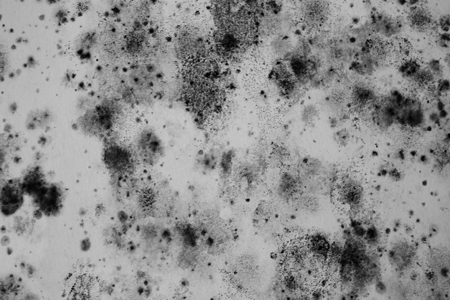
by Eric Brown | Apr 15, 2016 | Air Conditioning, Attic Mold, Basement Mold, Beware Of Mold When Buying A Home, Bleach and Mold, Can Black Mold Poison You?, Can Mold Kill?, Christmas Tree Mold, Chronic Inflammatory Response Syndrome (CIRS), Crawlspace Mold, Dead Mold Spores, Flood Clean Up, Health, How Toxic Is Mold?, Indoor Air Quality, Killing Mold, Mold and Asthma, Mold and Depression, Mold and Infants, Mold and Multiple Sclerosis, Mold and Parkinson's Disease, Mold and Pregnant Women, Mold and Sids, Mold and Sinusitis, Mold Facts, Mold In Apartment, Mold In The Bible, Mold Information, Mold Inspection, Mold Remediation, Mold Removal, Mold Removal Cost, Mold Risk During Renovation, Mold Sensitized Success Story, Questions and Answers, Sewer Backup, Sippy Cup Mold, Stachybotrys Black Mold, Top 15 Mold Prevention Tips, Toxic Mold, Water Damage Restoration
The Ultimate Mold Education Resource

The Ultimate Mold Education Resource
The goal of Mold B Gone is to educate our customers about mold. We strongly believe that an educated and informed consumer can make better decisions when they have concerns about mold.
Included in this article are 36 links to articles that will help you learn about mold.
Please bookmark this page because we will update it with new articles as they are researched and published.
If you have questions about mold removal, crawl space mold removal and encapsulation, other services we offer, and/or our 1 year up to 25 year guarantee, call us, 678-697-6267, or send us an e-mail. We look forward to serving you. 🙂
Mold Facts and Information (7 Articles)

Mold Facts and Information (7 Articles)
Priests were the equivalent of today’s mold inspectors. This article lists the three passages cited in Leviticus. Learn more!
Mold Fact 1: The Key Ingredient Mold Needs To Thrive Is Moisture. There are 9 more mold facts explained in this article. What do you think they are?
Top 4 Reasons Mold Grows In Your Attic! The purpose of this article is to explain why mold grows in your attic and prevention tips.
Top 3 Reasons Your Crawlspace Has High Humidity. This article explains why your crawlspace is humid, why this leads to mold and how you can fix the problem!
Steps Residents Can Take If They Have Mold In Their Apartment! This article explains what you can do if you find mold in your apartment. Learn more!
Top 10 Reasons Mold Is Scary!
Here are the top 10 reasons we believe that mold is scary. Enjoy!
This article provides you with information to help you determine if you have a mold problem and explains what you should and should not do if you do find mold.
Black Mold (2 Articles)
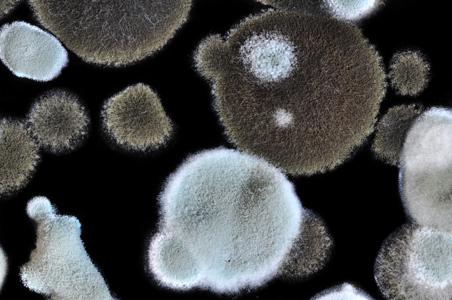
Black Mold (2 Articles)
Recently a news article featured a woman who believes that she was poisoned by toxic black stachybotrys mold. This article explores this topic further!
Stachybotrys is considered the king of molds because exposure to this toxic black mold causes 15 serious health conditions. Learn more!
Mold and Health (13 Articles)

Mold and Health (13 Articles)
Wondering if you are sensitive to mold? This article explains how to determine if you are mold sensitized, seeking treatment, and the next two steps to health!
This article explains why mold can be toxic, listing 10 specific health conditions. Learn more!
Potential Health Complications Mold Exposure Has On Pregnant Women and Infants! Questions answered about SIDS, asthma, miscarriage, and pulmonary hemorrhage.
This article article explains why mold grows on sippy cups, why it could make your child sick, and how you should properly clean the sippy cup!
Mold Remediation Improves Health! This article explains why, citing an interview with Jack and Helen Graham, a Mold Sensitized Success Story!
Could Some People Diagnosed With Multiple Sclerosis Actually Be Suffering From Mold Sickness? This article explains how and why. Learn more!
One in Three people get sick from their Christmas tree. This article explains why and what you can do to feel better. Learn more.
Why Do Some People Get Sick From Mold And Others Do Not? This article explains why 1 in 4 people have a genetic predisposition to mold illness.
This article explains why many suffering from CIRS are diagnosed with depression caused by mold. Both scientific and anectodal data are cited. Learn more!
Does Mold Cause Parkinson’s Disease? The purpose of this article is to explain why and how mold could be a possible cause of Parkinson’s Disease.
Top 3 Reasons Mold Sickness Is A Hidden Epidemic! You could be sick from mold and not even know it. This article explains why mold is a hidden epidemic!
37 million Americans suffer from sinusitis. Cause? This article lists the top 10 stats and facts citing MAYO clinic research that believes mold is the cause!
According to the CDC, rates of asthma among children in Georgia is 3% above the national average. Is mold a factor? This article cites stats and research!
Water Damage and Mold (4 Articles)
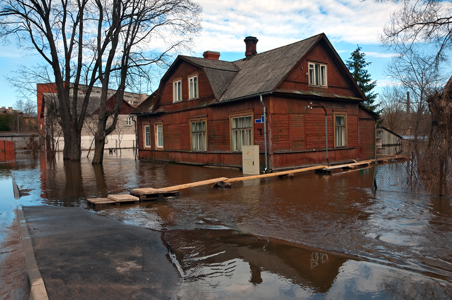
Water Damage and Mold (4 Articles)
Concerned about sewer backups? This article explains what causes sewers to backup and how you can prevent this from happening. Learn more!
Flood and water damage not only disrupts your life but can also be hazardous to your health! This article explains the top 3 hazards and prevention measures!
A flooded home or business is always a stressful situation. This blog provides you with the 3 steps required to reduce flood damage and most importantly, mold!
Water damage restoration restores a property to pre-loss condition after a flood. Check out the top 3 facts. Hint: Mold is not the only concern.
Mold Inspection and Prevention (7 Articles)

Mold Inspection and Prevention (7 Articles)
Mold growth can be prevented. This article list the top 15 mold prevention tips, to help you live in a mold free home.
Top 3 Reasons A Mold Inspection Is Essential! This article explains why you should submit an offer to purchase, subject to a home AND mold inspection!
Home improvement is an American tradition. But, did you know that 6 out of 10 homes could have mold? Renovating can cause serious problems. Learn more!
If you are concerned about mold in your basement or your basement was recently flooded, implement these 10 tips to prevent mold growth. Learn more!
If you or someone in your family suffers more frequently from colds or flus and you are not sure why, the cause could be poor indoor air quality. Learn more!
The purpose of this article is to explain how you air conditioner could be a source of mold contamination making you sick and what you can do to fix it.
Wonder what happens during a mold inspection? This article answers all your questions, listing the top 4 actions taken by reputable inspectors.
Mold Removal (3 Articles)
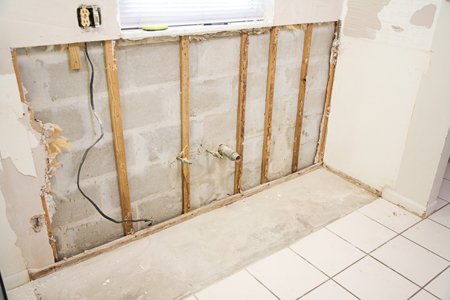
Mold Removal (3 Articles)
Have a mold concern, wondering what it will cost to remove? This article provides you with a detailed explanation of how mold removal cost is determined!
Mold sprays, bleach, biocides, and fungicides are an ineffective “short cut” to mold removal. Killing mold is not the answer! This article explains why.
Mold Removal Is Referred To As Mold Remediation Because Professionals Follow These 8 Steps. This article explains the steps and why you need to hire a pro!
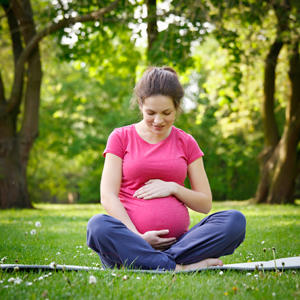
by Eric Brown | Mar 11, 2016 | Health, Indoor Air Quality, Mold and Asthma, Mold and Infants, Mold and Pregnant Women, Mold and Sids, Mold Facts, Mold Information, Questions and Answers, Sippy Cup Mold, Stachybotrys Black Mold, Toxic Mold
Potential Health Complications Mold Exposure Has On Pregnant Women and Infants!
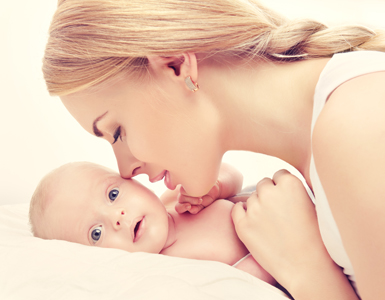
Potential Health Complications Mold Exposure Has On Pregnant Women and Infants!
There has been much talk in the news about mold being found in sippy cups, which can have an impact on your child’s health.
The purpose of this article is to explore the issue of mold further by examining it’s health impact on infants and pregnancy, specifically looking at the potential issues that black mold can have.
Is There A Link Between Pulmonary Hemorrhage and Black Mold With Infants?
According to the Centers for Disease Control pulmonary hemorrhage, bleeding in the lungs, is quite common amongst premature infants.
Researchers speculate that toxic effects from the black mold, stachybotrys chartarum, also known as stachybotrys atra, can also contribute to this condition, often accompanied by pulmonary edema, which is the swelling of the lungs.
Researchers believe that the bleeding in the lungs is caused by mold because it produces airborne toxins that weaken tiny blood vessels in infants just as their lungs begin growing at a rapid pace.
Other health problems linked to mold include croup, pneumonia and bronchitis in infants.
Can Asthma Begin In The Womb?
In an earlier article, we explained the link between mold and asthma and it was stated that mold is particularly harmful to children who are exposed to asthma at an early age. Asthma, in short, is linked to the environment and may not be dominated by genetic factors.
Some researchers are now concluding that asthma and other allergies actually begin during pregnancy, in the womb. They believe that asthma may be caused by triggers in the environment, such as black mold because it attacks the respiratory system.
What Is The Link Between Mold and Sudden Infant Death Syndrome (SIDS)?
There is some speculation that SIDS may be caused by the mold, scopulariopsis brevicaulis. The effects of this mold were documented in a New Zealand study that speculated that environmental poisoning may be the cause of SIDS.
The theory and research is based on the fact that mattresses made for infants contain three chemicals. Phosphorous is used in the mattress cover; arsenic and antimony are added as preservatives and fire retardants. The problem occurs when the mattresses get wet.
Researchers theorize that when the mattress gets wet from moisture caused by sweat, spitting on, etc. then the common household fungus, scopulariopsis brevicaulis, begins to grow in the mattress. When this occurs, the mold begins to consume these three chemicals, resulting in the production of three nerve gasses: phosphine, arsine, and stibine, which can be very deadly, especially to infants.
To prevent this from happening, the researchers recommend the following:
- Cover the top, all sides and most of the underside of the mattress with a polyethylene sheeting that is at least 5 mil thick and free of phosphorus, arsenic and antimony. Leave several venting holes on the underside of the mattress cover so that the gas can escape.
- Use fleecy pure cotton mattress cover over the polyethylene sheeting and tuck it in securely.
- Make the bed using pure cotton sheets and blankets.
- Do not use any of the following as baby bedding: sheepskin, moisture-resistant mattress protector, acrylic under blanket, sleeping bag or duvet.
- Clean mattress covers by wiping with pure soap and water. Do not use chemical bleaches or sterilizers.
What Is The Link Between Mold and Miscarriage?
To date, the evidence linking mold with miscarriage or birth defects is primarily anecdotal, ie. there are stories of women being exposed to mold during pregnancy and suffering. According to MBL Laboratories, there is no conclusive evidence that exposure to molds such as Stachybotrys or Aspergillus can cause pregnancy loss. The number one reason that there is no conclusive evidence is that it is very difficult to do clinical trials on a pregnant woman. In short, it would be highly unethical to purposely expose a pregnant woman to high levels of mold spores.
Of the three types of mold–allergenic, pathogenic, and toxic–it is believed that toxic mold, like stachybotrys, could harm the pregnant woman and possibly the baby growing inside. This conclusion is reasonable considering the growing evidence that black mold causes significant health problems.
Despite the lack of research studies on pregnant women, there have been some studies on animals. Animal studies using mice indicate that mold toxins can disrupt fetal development. For instance, oral ingestion of contaminated feed or partially purified toxin of stachybotrys chartarum was shown to cause a decrease in the number of pregnant mice; an increased frequency in dead, resorbed or stunted fetuses; and decreased average litter size. This evidence is not conclusive, but it does show that mold could be harmful.
Mold Exposure Is Not Safe For Pregnant Women and Infants!
Despite the fact that much of the evidence related to the harm that mold can have on pregnant women, the unborn child, and newly born infants is anecdotal, it does not mean that exposure to mold is safe.
Inhaled in large quantities, toxic molds like stachybotrys will cause health problems. The people at greatest risk of health effects associated with mold exposure are those with respiratory conditions, allergies, asthma, and sinusitis, as well as infants and children, elderly people, individuals with a weakened immune system and pregnant women.
If you have just found out that you are pregnant, or begin worrying about mold, you should get your home or workplace tested for mold. Do not as a pregnant woman, attempt to remove the mold yourself, the less exposure you have, the better. Start off your pregnancy in a mold-free environment, it’s better to be safe than sorry. For your baby’s health, it is also important to keep your house mold-free after birth.
If you are unsure if you have mold, hire Mold B Gone to do a mold inspection and air quality tests to measure the spore count inside of the home. If you do have mold, then first fix the source of moisture which is causing the mold, then have it removed.
Questions? Call us, 678-697-6267, or send us an e-mail. We look forward to serving you! 🙂
Is Mold Dangerous To Pregnant Women and Infants Infographic

Is Mold Dangerous To Pregnant Women and Infants Infographic
















